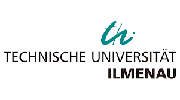1. Introduction to the advanced program
In order to improve the quality of Vietnam’s higher education, and to integrate higher education with other countries in the region and the world, the Ministry of Education and Training has implemented a project on advanced training programs (CTTT). Advanced programs are:
– The project is invested by the Government of Vietnam under the direct direction of the Ministry of Education and Training. The country has 35 advanced programs implemented at 23 leading universities in Vietnam.
– Being “imported” a full package of training programs and training methods of foreign partner schools (mainly from the US). Besides, studying more Marxist-Leninist Science subjects, Physical Education.
– Study in English except for Marxist-Leninist Science, Physical Education.
Graduates have the conditions to study directly for graduate and doctoral studies abroad, and have many opportunities to work in foreign enterprises.
– Students only have to pay very low tuition fees to coordinate the implementation of the program.
2. Introduction to the advanced program in cooperation with the University of Oklahoma, USA at the College of Industrial Engineering
Thainguyen University of Technology is authorized by the Ministry of Education and Training to deploy an advanced program in Electrical Engineering in cooperation with the University of Oklahoma – one of the famous universities of the United States.
The advanced program in Electrical Engineering is built on the program of Electrical Engineering at Oklahoma State University, USA. The goal of the program is to fully equip students with basic knowledge of Electrical, Electronics, Informatics, Measurement, Control, Automation, Electrical and Communication systems to help students grasp the knowledge Advanced basic knowledge in the field of Electrical Engineering and Control of modern equipment systems.
Students learn the most advanced textbooks of the United States and practice experiments on the most advanced Electrical, Electronic and Telecommunications equipment at the University.
Graduates can work in design, technical management in factories and enterprises with high requirements in the fields of electronics, automation and system control. In addition, priority is given to transfer to master’s and doctoral studies in the United States, Europe, Korea, and Taiwan under the State’s, companies’ or professor’s scholarships; or have the opportunity to work at universities, colleges in the technical sector, FDI companies such as SAMSUNG, CANON, FOXCONN, WNC, TOYOTA, etc.
3. Educational objectives
The Advanced Program in Electrical Engineering provides students with general education knowledge, technical specialization, basic practice skills, can be able detect and solve Electrical Engineering problems:
The knowledge:
Equipped Marxist – Leninist knowledge, social sciences – humanities, physical education and national defence education (For Vietnamese students only).
The basic knowledge of mathematics, natural science to study the concentration courses and developing study in higher educational level.
Fluency in software as CAD/CAM/CNC, work with C, C++, Matlab, etc…
Analysing the circuit, electronic circuits in the industry, the problem of power transmission, electric equipment, power supply systems, Program control.
Knowledge on development, documentation and presentation of projects is part of the program.
Skills:
To design power-devide system for industrial and residential areas, workshops, factories, residential and industrial lighting systems, protect thunderbolt systems, security systems and general electrical safety.
To operate automatic control systems, services and public systems as PLCs, microprocessors, mini SCADA…
To maintain, repair the install electrical circuits – electronics, industrial machinery in electrical engineering.
Having basic skills in listening, speaking, reading and writing English. Have the ability to work in groups and work independently.
Attitude:
To produce graduates equipped with virtuous characters, imbued with love and loyalty to the Socialist Republic of Vietnam, being healthy and committed to the responsibility of working for the industrialization and modernization of Vietnam.
Job Opportunities
Opportunities work in technical departments, room design, mechanical and electrical rooms and other consulting companies, design and construction of electricity; training institutions, research institutes, and technology transfer in the fields of electrical engineering.
Continuing study subjects at the postgraduate level (Master, PhD).
4. Program Learning Outcomes – PLO
| PLO-01 | Technology knowledge: An ability to apply knowledge of mathematics, science, engineering fundamentals and engineering specialization to the solution of complex engineering problems. |
| PLO-02 | Problem analysis: An ability to identify, formulate, research literature and analyze complex engineering problems reaching substantiated conclusions using first principles of mathematics, natural sciences and engineering sciences. |
| PLO-03 | Investigation: An ability to investigate complex engineering problems in a methodical way including literature survey, design and conduct of experiments, analysis and interpretation of experimental data and synthesis of information to derive valid conclusions. |
| PLO-04 | Design/Development of solution: An ability to design solutions for complex engineering problems and design systems, components or processes that meet specified needs with appropriate consideration for public health and safety, cultural, societal, and environmental considerations. |
| PLO-05 | Modern tool usage: An ability to create, select and apply appropriate techniques, resources and modern engineering and IT tools, including prediction and modeling to complex engineering activities, with an understanding of the limitations. |
| PLO-06 | The engineer and society: An ability to apply reasoning informed by contextual knowledge to assess societal, health, safety, legal and cultural issues and the consequent responsibilities relevant to professional engineering practice and solution to complex engineering problems. |
| PLO-07 | Environment and Sustainability: An ability to understand the impact of professional engineering solutions in societal and environmental contexts and demonstrate knowledge of and need for sustainable development. |
| PLO-08 | Ethics: Apply ethical principles and commit to professional ethics and responsibilities and norms of engineering practice. |
| PLO-09 | Individual and team work: An ability to work effectively, as an individual or in a team, on multifaceted and /or multidisciplinary settings. |
| PLO-10 | Communication: An ability to communicate effectively, orally as well as in writing, on complex engineering activities with the engineering community and with society at large, such as being able to comprehend and write effective reports and design documentation, make effective presentations, and give and receive clear instructions. |
| PLO-11 | Project management: Ability to demonstrate management skills and apply engineering principles to one’s own work, as a member and/or leader in a team, to manage projects in a multidisciplinary environment. |
| PLO-12 | Life-long learning: An ability to recognize importance of, and pursue lifelong learning in the broader context of innovation and technological developments. |




